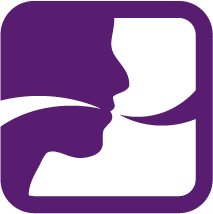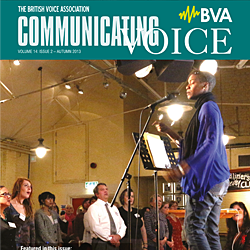About the Association
Archived newsletter articles
Nottingham Voice Clinic Course
23–24 March 2006, Queen's Medical Centre, Nottingham
British Voice Association event report by Declan Costello
Julian McGlashan's Nottingham course has become a regular fixture in the BVA diary in the last few years, and is consistently extremely popular. This year's course was no exception, with the course fully subscribed several months in advance.
The format of the course has shifted subtly since its inception, but the emphasis has always been on practical aspects of assessment in the voice clinic. The presence of numerous equipment manufacturers enables delegates to use a variety of endoscopes.
An initial overview of the course by Julian was followed by a talk by Katherine Behenna on the assessment protocol used in the Nottingham voice clinic at QMC. This provided a very useful framework for clinicians to employ if they are considering setting up their own voice clinic, or if they wish to re-structure the one they already have.
Julian has devised a classification of voice disorders which has proved very robust and helpful for clinicians. The course was structured to explore each of the four categories of voice disorders, with an initial overview of the topic, then aspects of assessment, followed by a panel discussion of interesting and challenging cases.
Thus, the first category in the 'McGlashan classification' of voice disorders was neuromuscular disorders. Claire Wells, Tom Harris and Julian McGlashan were the speakers in this section. A panel discussion then followed, with many questions and interjections from the delegates.
There were then two workshops. One featured a lecture by Jacob Liebermann on the assessment of posture and breathing. Some audiovisual hitches disappointed some of the delegates in this talk, but this was quickly rectified. The other workshop was an interactive session using the Laryngograph system. For delegates not familiar with the software, it was an invaluable opportunity to discuss objective measures of dysphonia with the man who developed the programme (Professor Adrian Fourcin).
All the delegates then gathered for the final session of the first day, which was a discussion of structural and neoplastic disorders. Meredydd Harries, Bruno Coulombeau and Julian McGlashan were the speakers.
Day two started with the ever-popular demonstration by Bruno Coulombeau of his technique of rigid laryngostroboscopy. It is always interesting to hear that there are numerous different ways of examining the larynx, and it was fascinating to hear how Dr Coulombeau performs his examinations. He certainly is able to achieve outstanding images.
Workshops then followed, with some of the speech and language therapists having an opportunity to perform flexible nasendoscopy. The rest of the delegates were instructed in the examination of laryngostroboscopic images.
One of the most popular aspects of the course is the opportunity to use various endoscopes and for those not familiar with the techniques to "have a go". The sponsors of the course also enjoy the opportunity to show off their equipment to the delegates during this section of the course.
Further sessions followed on with two more categories of voice disorder: cases of laryngeal inflammation and neuromuscular cases, including the ever-problematic cases of spasmodic dysphonia.
The final session of the course was somewhat different from the rest of the programme: Lynne Wayman, who is a voice coach affiliated to the Nottingham voice clinic, brought along a client who had had some vocal difficulties, and effectively held an open singing lesson in which she explored some of his vocal problems and attempted to rectify some of them. It is not often that ENT surgeons or speech and language therapists have the opportunity to see this sort of teaching, and it gave a very useful insight into how singing lessons given by an experienced teacher can be enormously beneficial.
The Nottingham course has always been an invaluable opportunity for delegates to meet colleagues and catch up with old friends. The course dinner on the first night of the course was just such an opportunity, and was held in a (justifiably) popular Italian restaurant in the middle of Nottingham.
Special mention should go to the speech and language therapy team in Nottingham, consisting of Suzanne Slade, Katherine Behenna and Fiona Robinson, who had put in an enormous amount of work on the case presentations and were invaluable members of the faculty. Jackie Ellis provided her customary outstanding administrative support.
Overall, feedback from the course was positive, with just a few adverse comments about the noise adjacent to the venue (the hospital is building a treatment centre next to the postgraduate medical centre). Plans are already in hand to organise a similar course next year.
More archived content online
Disclaimer
Neither the British Voice Association nor the Editor can be held responsible for errors or any consequences arising from the use of information contained in its newsletters (or extracts from its newsletters published online); the views and opinions expressed do not necessarily reflect those of the British Voice Association (BVA) or the Editor, neither does the publication of advertisements constitute any endorsement by the BVA or Editor of any products or services featured.

 Join us Now!
Join us Now! our newsletter
our newsletter free voice care leaflets & information – download here
free voice care leaflets & information – download here Help our work by donating while you shop
Help our work by donating while you shop